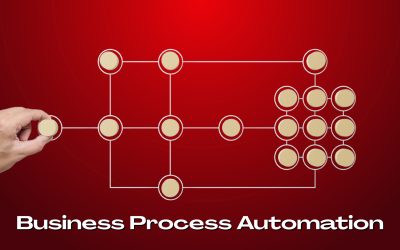Lead Management Process
When your content, product, or service captures someone’s attention, you have a lead. The effectiveness of your lead management strategy will determine whether that lead turns into a client and how soon they do. But what does that process look like, and how can you make it work for your company?
Lead management is the process of managing your leads from the moment they show interest in your product or service until they become satisfied customers. Here’s an example of the entire lead management process:
Let’s assume you run a Facebook ad. Someone clicks on your advertisement because they enjoy the way it looks. They arrive at your ad landing page. There you have it: an offer for a report they would be interested in reading. To receive the report, they must fill out a form and provide you with their email address. At that time, that individual has taken the lead.
Now it’s up to you to develop that relationship and keep them interested. You might send them a series of emails. In the last email, you may recommend that they give one of your staff members a call to see whether your product will be beneficial to them. If they agree to a call, they have become a warm lead. If the call goes well, they may tell you they are ready to buy (we would refer to them as a hot lead at this point). All you have to do now is make sure they really pull out their credit card!
That’s lead management: guiding potential clients from “not interested” to “interested” to “very interested” and, eventually, “paying customers.”
What is the Lead Management Process?
Lead management is the process of obtaining, qualifying, analyzing, and nurturing potential consumers (leads) until they complete a purchase. It all starts with attracting potential consumers from various sources, entering their information into your database, and categorizing them depending on how likely they are to buy. Your marketing team may then use personalized marketing tactics to engage and convert leads.
For example, some potential consumers may visit your e-commerce store and browse the items, but leave without purchasing. In that situation, capturing these leads and delivering relevant emails or advertising to their social media accounts based on their behavior will keep them engaged. They will learn about your product through this, and you could convince them to buy it when the time is right. So, the lead management process begins with visitors landing on your website and continues until they become loyal clients.
Lead Management Process:
The lead management process happens within your software, and it always involves a few phases to acquire, track, qualify, distribute, and nurture leads.
1. Lead Capturing:
The lead management process begins by analyzing contacts from all demographics and entering their information into your database.
Sometimes the first contact you receive is from an anonymous visitor to your website, but most people do not consider this to be a lead. It becomes a lead when the individual fills out a form and allows the firm to send them marketing emails, or when they take an action that indicates they want to continue the interaction.
Businesses may create leads using both outbound and inbound strategies. You may reach potential buyers through several channels, such as email, social media, webinars, and paid advertisements.
2. Lead Tracking:
Next, you’ll need to collect further information on each lead. Tracking where a lead comes from helps your sales staff learn the best method to engage with the consumer, depending on their preferences or prior behavior.
It would take a long time to assemble this information manually. Fortunately, a lead management tool can automatically collect data from all of your leads.
For example, it may monitor the pages a lead sees on your website, the information they consume, and the advertisements they view. Over time, the system will create a detailed lead profile that includes each lead’s interests, location, job, time zone, social media profiles, and more.
3. Lead Qualification:
During the lead qualifying stage, you’ll decide whether a lead is the right match for your company. What type of behaviors do they show? Do they read your content? Are they responding to emails or SMS messages? Are they returning to your website? What are people looking for when they visit your website?
All of these behaviors add to a lead score, which decides whether the individual becomes a marketing-qualified lead (MQL) or is not yet ready to progress down the funnel. Your lead management system can assist you in identifying quality prospects to pursue and unqualified leads to avoid at this time.
4. Lead Distribution:
The appropriate sales team receives the leads after they have been collected and monitored. This allows you to have several teams concentrating on different sorts of leads. For example, one team may specialize in small to medium-sized businesses, while another may focus on major corporations.
From here, sales representatives will get to know the prospect. They review all of the information, follow up with the consumer, ask questions, and try to determine whether a lead is interested in becoming a customer.
A lead becomes a sales-qualified lead (SQL) if sales decides the lead is prepared for action. The lead then turns into an opportunity when sales enter a monetary value into the lead management software. You can then try to close the deal after that.
5. Lead Nurturing:
Remember that not every lead will result in an immediate sale. When your sales staff first contacts a person, very few of them are prepared to purchase. Make sure your sales staff maintains contact with leads over time, rather than letting that relationship fade.
In actuality, lead management calls on sales representatives to cultivate the connection to stay in touch with the lead till they are prepared to convert. It’s the most effective strategy to reengage leads and, ideally, turn them into paying clients.
Why is Lead Management Process Important?
If businesses nurture their potential customers with contextual and relevant marketing activities, they have a 50% higher chance of generating hot leads at a 33% lower cost. Imagine what an effective lead management process can do when lead nurturing, a step in the process, offers such a high return on investment.
Let’s say you get tens of thousands of leads for your online business. Some of them drop out because they are not relatable, while others do so because the costs are not balanced. Now, at least half of them—your hot leads—are ready to buy but were unable to do so because of a high site visitor volume or a failed payment. What was the outcome? If other businesses better suit your qualified hot leads’ demands, they will end up there.
Without lead management, your marketing staff could end up wasting time on unqualified leads while sales-ready customers drop off. The error is prevented by an effective lead management procedure.
Wrapping It Up:
Lead management helps firms organize sales-worthy leads more efficiently. When the time comes to reorganize and pursue leads more effectively, assess your sales software and tools to see whether they are capable of managing contemporary lead management. Effective lead management software can help businesses capture, track, qualify, distribute, and nurture leads at scale without overburdening their sales staff. Handling this manually is almost difficult.






